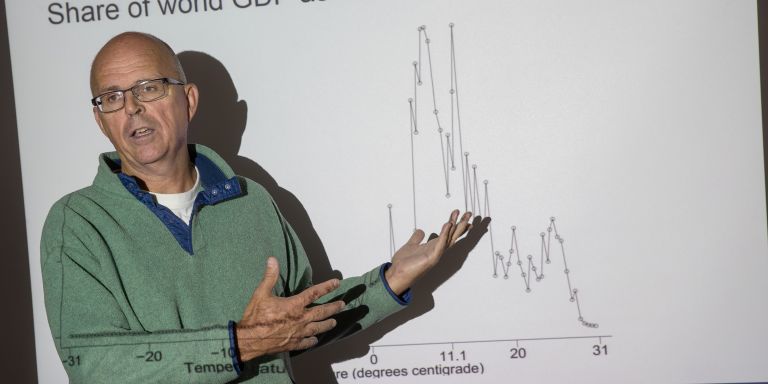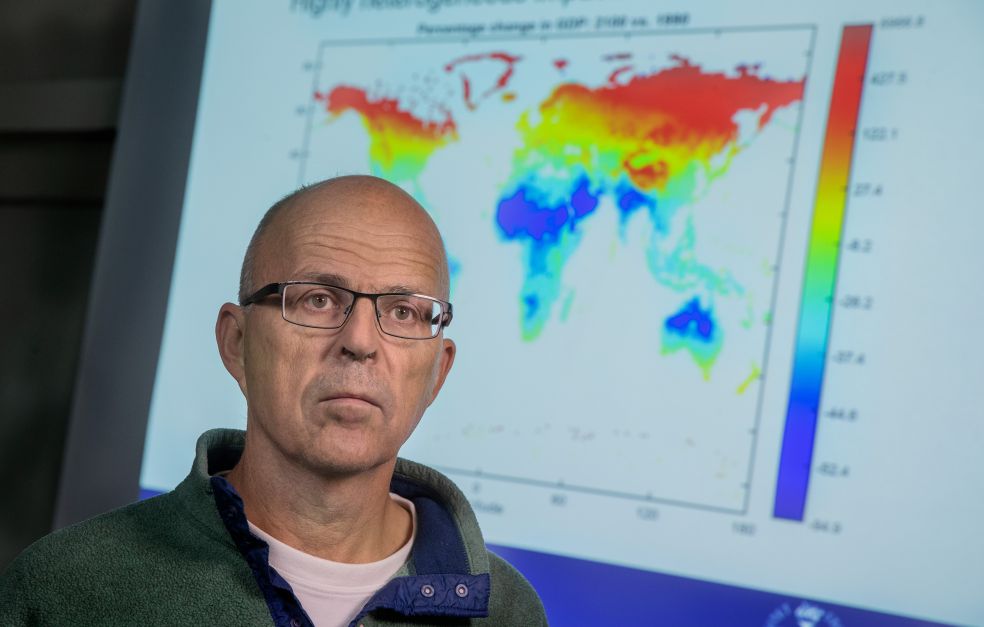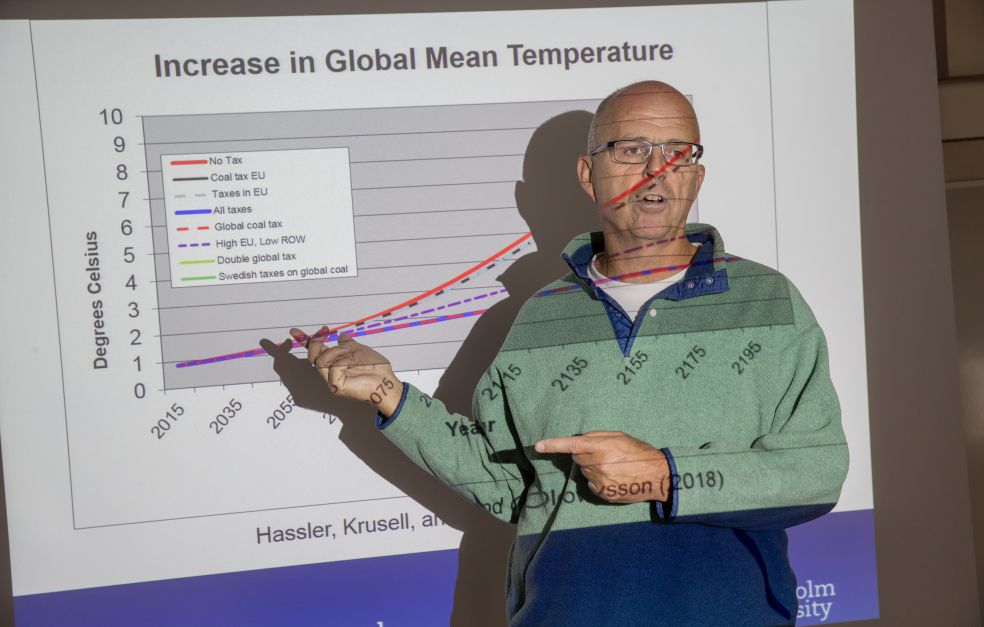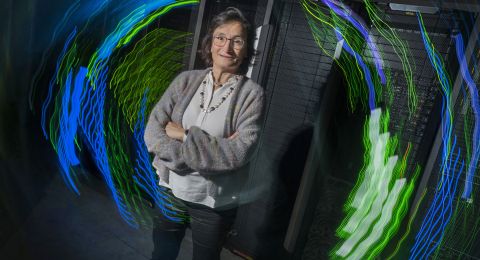A tax on carbon dioxide would be the most effective means of reducing emissions. So says economist Per Krusell, who has established world-leading research into the interaction between economics and climate change. He hopes that both decision makers and young people engaged in preventing climate change will become aware of the solutions offered by research in the social sciences.
Per Krusell
Professor of Economics
Wallenberg Scholar
Grant from Marianne and Marcus Wallenberg Foundation
Institution:
Stockholm University
Research field:
The interaction between economics and climate change
Krusell is one of the few macroeconomists who became interested in climate at an early stage. Ten years ago he arranged a PhD course on climate and economics at Stockholm University. Only two students enrolled.
“But on a recent visit to Madrid doctoral students from twenty or so countries were lining up to hear our viewpoints.
As a Wallenberg Scholar, Krusell has produced internationally recognized research shedding new light on the climate issue. In recent years he has also traveled the world as principal speaker at a number of conferences, and has met with leading politicians and industrialists.
“Climate has gone from being treated with indifference to becoming a really hot topic,” he points out.
Krusell considers that various aspects of sustainability are among the motivators for research of this kind. One topic is energy supply, and how our markets succeed in balancing supply and demand for energy.
“Even if we disregard climate problems, we must ask ourselves whether we are using up fossil fuels too quickly. Should we make haste slowly, and make sure that reserves are available for the future?”
“Without the Wallenberg Scholar grant we would not have been able to carry out so much research on climate and economics. The funding has enabled us to establish an internationally recognized knowledge base. The present high demand for our research is something I could never have dreamt of ten years ago.”
Over-reliance on green technology
He has also analyzed investments in green technology, and how effective they are in reducing CO2 emissions. His findings show that there is an over-reliance on new technology.
“Many people take it for granted that everything will be just fine if we commit to green technology. But this is wishful thinking. Our economic analyses suggest that these investments may be a good way of increasing our energy consumption, but they don’t spell the end for coal-fired power plants.”
Krusell says that so far, green technology has had only a marginal impact in reducing harmful emissions, and this will continue for the foreseeable future. He adds:
“This is something that those striving to mitigate climate change must keep in mind.”
Carbon dioxide tax most effective
But this does not mean that Krusell is sounding the death knell for the global climate. On the contrary – his research has given him the basis for a concise message. Current findings show that the most effective remedy for the climate would be a tax on carbon dioxide, preferably worldwide and the same in all countries.
“The point of a tax is to put a price on whatever harms the environment and heats Earth, i.e. when coal or oil is burnt. And it’s essential the tax be the same everywhere.”
If the tax is brought in at different levels in different countries, it’s likely that nations with a low tax rate would attract investment, and that their CO2 emissions would remain high. The same tax rate in different countries would increase the chances of resources being allocated efficiently, reducing the risk of setbacks.
Krusell sounds both engaged and frustrated when he talks about current climate policy. Many decisions seem to be based more on feelings than on hard economic data. But how high should a carbon dioxide tax be? He points out that there are elements of uncertainty both about the science and the economics:
“But where there is great uncertainty, we should bear in mind that a really high tax, justified in view of the very real threats facing our climate, would greatly reduce emissions. If it later transpires that the worst-case scenario was not so bad after all, the harm to society would not be so great in any case, according to the models we have developed. The alternative, on the other hand, could be extremely costly.”
Sweden a forerunner
Krusell hopes that Sweden will be a frontrunner. Some years ago Sweden pressed for a reform of trade in emission rights. “The Swedish Proposal” resulted in much higher market prices, and a limit on the number of emission rights issued. A similar initiative is needed for a global tax on carbon dioxide.
“We have previously set an example by proposing smart measures, and wider adoption of such measures would be much more beneficial to the climate than merely being a prophet in our own land. It would actually suffice if the whole world had half the carbon dioxide taxes Sweden already has. That would solve the problem.”
Krusell believes that smart, constructive and problem-oriented solutions can persuade other countries to come together on climate, and cold, hard economic data can also persuade those with most power – presidents, prime ministers and finance ministers – to listen.
“The worst thing about the current debate is that people often outdo one another at being the most extreme. We would make so much more progress by focusing on socio-economic analyses, and basing our decisions on research.”
Text Nils Johan Tjärnlund
Translation Maxwell Arding
Photo Magnus Bergström






